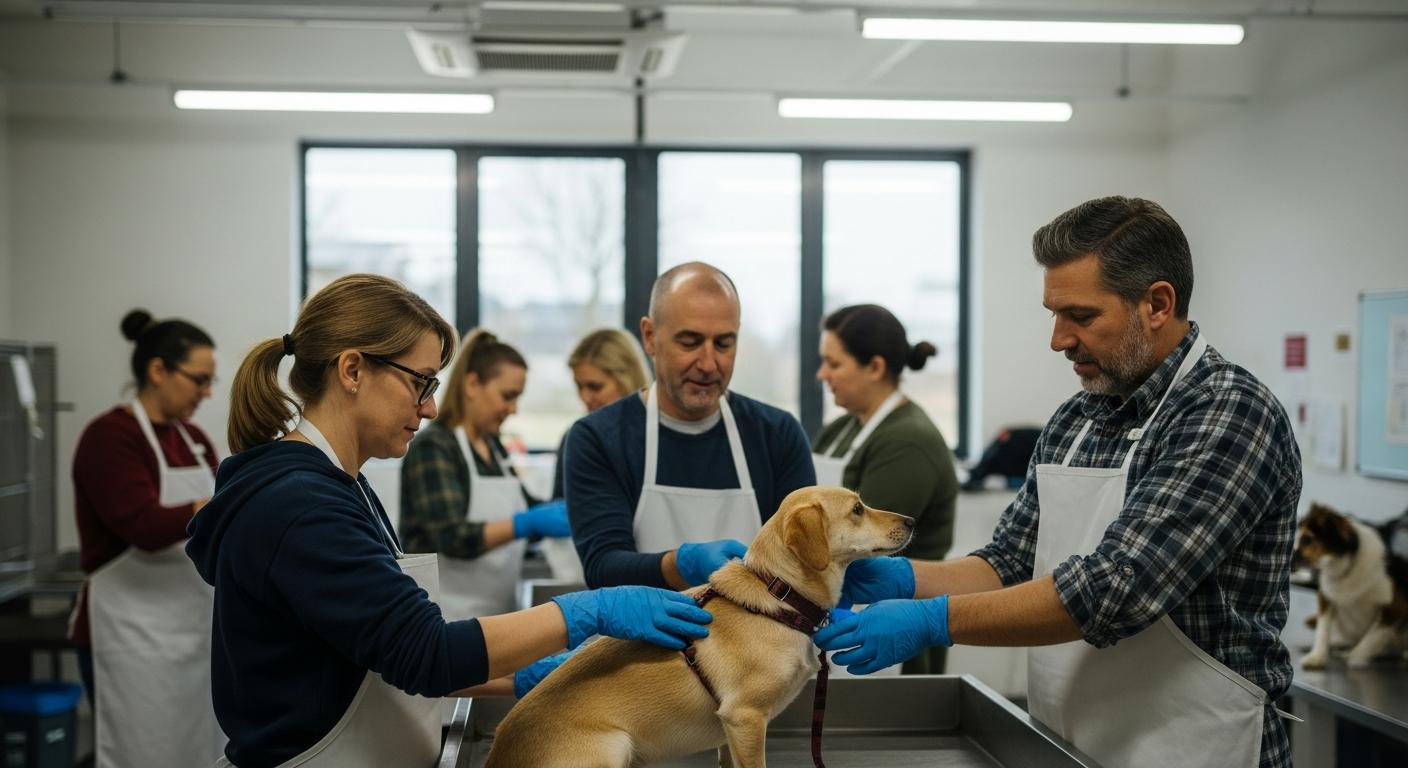Exploring the World through Culinary Volunteering
Embark on a gastronomic adventure that combines travel, cultural immersion, and social impact. Culinary volunteering is revolutionizing the way food enthusiasts experience global cuisines while making a positive difference in local communities. This innovative travel trend offers a unique blend of hands-on culinary education, cultural exchange, and meaningful volunteer work.

Initially popularized by small, grassroots organizations, culinary volunteering has since been embraced by larger travel companies and non-profit organizations. These programs typically involve working in community kitchens, assisting local chefs, or participating in sustainable agriculture projects. The focus is not only on cooking but also on understanding the cultural, social, and economic contexts that shape local food systems.
Immersive Cultural Exchange through Food
One of the most compelling aspects of culinary volunteering is the opportunity for deep cultural exchange. Food is often considered a universal language, capable of bridging cultural gaps and fostering connections between people from diverse backgrounds. By working alongside local chefs and community members, volunteers gain intimate insights into traditional cooking methods, ingredient sourcing, and the cultural significance of various dishes.
These experiences go beyond typical cooking classes or food tours. Volunteers often live with host families or in community accommodations, allowing for a more authentic and immersive cultural experience. They participate in daily routines, shop at local markets, and engage in conversations about food, traditions, and local life. This level of immersion provides a unique perspective on the destination that is rarely achieved through conventional tourism.
Sustainable Impact and Community Development
Culinary volunteering programs are designed to create sustainable impact in local communities. Many initiatives focus on addressing food insecurity, promoting nutrition education, or supporting local food producers. Volunteers might work on projects such as establishing community gardens, teaching cooking skills to underprivileged groups, or assisting in the development of small food-based businesses.
The emphasis on sustainability extends to the sourcing of ingredients and the promotion of traditional, often environmentally friendly, cooking methods. This approach not only benefits the local community but also educates volunteers about sustainable food practices they can incorporate into their own lives back home.
Skill Development and Personal Growth
For aspiring chefs, food enthusiasts, and even seasoned culinary professionals, culinary volunteering offers unparalleled opportunities for skill development. Participants learn authentic recipes, master local cooking techniques, and gain insights into unfamiliar ingredients and flavor profiles. This hands-on experience is invaluable for those looking to expand their culinary repertoire or gain a competitive edge in the food industry.
Beyond culinary skills, these programs foster personal growth through cross-cultural communication, problem-solving in resource-limited settings, and adaptability to new environments. Many volunteers report increased self-confidence, enhanced creativity, and a broader worldview as a result of their experiences.
Challenges and Considerations
While culinary volunteering offers numerous benefits, it’s not without challenges. Participants should be prepared for cultural differences, language barriers, and potentially basic living conditions. It’s crucial to research and choose reputable organizations that prioritize ethical volunteering practices and genuine community engagement.
Volunteers should also consider their own skill levels and the specific requirements of each program. Some initiatives may be better suited for experienced cooks, while others welcome beginners. Additionally, it’s important to be mindful of dietary restrictions, food allergies, and health considerations when planning a culinary volunteer experience.
Savoring the Experience: Key Insights for Culinary Volunteers
-
Research thoroughly: Choose programs aligned with your skills and interests
-
Be open-minded: Embrace unfamiliar ingredients and cooking methods
-
Learn basic phrases: Familiarize yourself with local language related to food and cooking
-
Pack appropriately: Bring suitable clothing for kitchen work and local cultural norms
-
Document your journey: Keep a culinary diary or blog to share your experiences
-
Stay connected: Maintain relationships with the community after your volunteer period
Culinary volunteering represents a transformative approach to travel, offering a unique blend of cultural immersion, skill development, and community impact. As travelers increasingly seek meaningful experiences that go beyond surface-level tourism, this trend is likely to continue growing. By combining the universal appeal of food with the satisfaction of volunteer work, culinary volunteering creates lasting memories and fosters cross-cultural understanding, one meal at a time.






